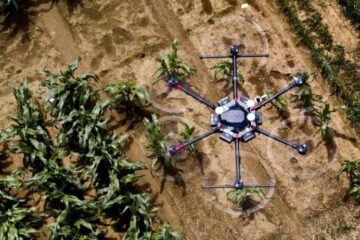A painless way to achieve huge energy savings: Stop wasting food

Their study, reported in ACS' semi-monthly journal Environmental Science & Technology, found that it takes the equivalent of about 1.4 billion barrels of oil to produce, package, prepare, preserve and distribute a year's worth of food in the United States.
Michael Webber and Amanda Cuéllar note that food contains energy and requires energy to produce, process, and transport. Estimates indicate that between 8 and 16 percent of energy consumption in the United States went toward food production in 2007. Despite this large energy investment, the U.S. Department of Agriculture estimates that people in the U.S. waste about 27 percent of their food. The scientists realized that the waste might represent a largely unrecognized opportunity to conserve energy and help control global warming.
Their analysis of wasted food and the energy needed to ready it for consumption concluded that the U.S. wasted about 2030 trillion BTU of energy in 2007, or the equivalent of about 350 million barrels of oil. That represents about 2 percent of annual energy consumption in the U.S. “Consequently, the energy embedded in wasted food represents a substantial target for decreasing energy consumption in the U.S.,” the article notes. “The wasted energy calculated here is a conservative estimate both because the food waste data are incomplete and outdated and the energy consumption data for food service and sales are incomplete.”
Percentage of Various Foods Wasted in the U.S.
Fats and oils 33%
Dairy 32%
Grains 32%
Eggs 31%
Sugar and other caloric sweeteners 31%
Vegetables 25%
Fruit 23%
Meat, poultry, fish 16%
Dry beans, peas, lentils 16%
Tree nuts and peanuts 16%
DOWNLOAD FULL TEXT ARTICLE: http://pubs.acs.org/stoken/presspac/presspac/abs/10.1021/es100310d
ACS' Environmental Science and Technology “Wasted Food, Wasted Energy: The Embedded Energy in Food Waste in the United States”
CONTACT:
Michael Webber, Ph.D.
Mechanical Engineering
Center for International Energy and Environmental Policy
The University of Texas at Austin
Austin, Texas 78712
Phone: 512- 475-6867
Fax: 512- 471-1045
Email: webber@mail.utexas.edu
The American Chemical Society is a non-profit organization chartered by the U.S. Congress. With more than 161,000 members, ACS is the world's largest scientific society and a global leader in providing access to chemistry-related research through its multiple databases, peer-reviewed journals and scientific conferences. Its main offices are in Washington, D.C., and Columbus, Ohio.
Media Contact
More Information:
http://www.acs.orgAll latest news from the category: Studies and Analyses
innovations-report maintains a wealth of in-depth studies and analyses from a variety of subject areas including business and finance, medicine and pharmacology, ecology and the environment, energy, communications and media, transportation, work, family and leisure.
Newest articles

AI to Make Crop Production More Sustainable
Drones monitoring fields for weeds and robots targeting and treating crop diseases may sound like science fiction but is actually happening already, at least on some experimental farms. Researchers from…

Cruise Ship as Data Collector
New Approaches in Ocean Observation… Scientific research – not only confined to dedicated research vessels but also from non-scientific vessels and marine infrastructures. This is one of the ideas promoted…

Groundbreaking microcapacitors could power chips of the future
Scientists developed microcapacitors with ultrahigh energy and power density, paving the way for on-chip energy storage in electronic devices. In the ongoing quest to make electronic devices ever smaller and…





















